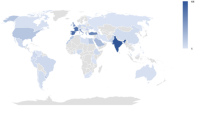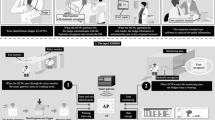Abstract
The purpose of this study was to examine how Hollnagel's efficiency-thoroughness trade-off or ETTO principle (Hollnagel, The ETTO principle: efficiency-thoroughness trade-off. Ashgate Publishing Ltd, Farnham, 2009) can inform our understanding of the organisational strategies used to manage bed and staff resources in an Intensive Care Unit (ICU). We conducted a field study involving observations, interviews and analysis of artefacts used by the rostering nurse and nurse-in-charge of an ICU in a large metropolitan hospital. We identified five organisational strategies used by the nurses to maintain balance between efficiency and thoroughness demands: (a) a flexible unit-based staffing policy, (b) a theatre coordination rule, (c) a set of bed and staff (re)distribution options, (d) patient bed location preferences, and (e) staffing allocation order preferences. Our findings show that the ETTO principle is a useful descriptive model for understanding the factors that make organisational strategies successful. We also suggest how ideas from the organisational literature can enrich future research on the ETTO principle.

Similar content being viewed by others
Explore related subjects
Discover the latest articles and news from researchers in related subjects, suggested using machine learning.References
Abraham J, Reddy M (2009) Challenges to inter-departmental coordination of patient transfers: A workflow perspective. Int J Med Inform. doi:10.1016/j.ijmedinf.2009.11.001
Argyris C, Schon D (1978) Organizational learning: a theory of action perspective. Addison-Wesley, Reading Mass
Bardram J (2000) Temporal coordination: on time and coordination of collaborative activities at a surgical department. Comp Sup Coop Work 9:157–187
Cook RI (2006) Being bumpable: consequences of resource saturation and near-saturation for cognitive demands on ICU practitioners. In: Woods DD, Hollnagel E (eds) Joint cognitive systems: patterns in cognitive systems engineering. CRC Press, Boca Raton, pp 23–35
Feldman MS, Pentland BT (2003) Reconceptualizing organizational routines as a source of flexibility and change. Adm Sci Q 48(1):94–118
Hollnagel E (2009) The ETTO principle: efficiency-thoroughness trade-off. Ashgate Publishing Ltd, Farnham
Miller A, Xiao Y (2006) Multi-level strategies to achieve resilience for an organisation operating at capacity: a case study at a trauma centre. Cogn Technol Work 6:207–222
Mintzberg H (1979) The structuring of organizations. Prentice-Hall, Englewood Cliffs
Nemeth C, O’Connor M, Klock PA, Cook R (2006) Discovering healthcare cognition: The use of cognitive artifacts to reveal cognitive work. Organ Stud 27(7):1011–1035
Strauss A, Corbin J (1998) Basics of qualitative research: techniques and procedures for developing grounded theory. Sage, Thousand Oaks
Thompson JD (1967) Organizations in action. McGraw Hill, New York
Xiao Y, Kiesler S, MacKenzie CF (2007) Negotiation and conflict in large scale collaboration: a preliminary field study. Cogn Technol Work 9(3):171–176
Acknowledgments
This research was supported by Australian Research Council Grant DP0880920 to Sanderson and Venkatesh. We thank the staff members in the Princess Alexandra Hospital Intensive Care Unit for their time and support.
Author information
Authors and Affiliations
Corresponding author
Rights and permissions
About this article
Cite this article
Xiao, T., Sanderson, P., Clayton, S. et al. The ETTO principle and organisational strategies: a field study of ICU bed and staff management. Cogn Tech Work 12, 143–152 (2010). https://doi.org/10.1007/s10111-010-0147-2
Received:
Accepted:
Published:
Issue Date:
DOI: https://doi.org/10.1007/s10111-010-0147-2




